The Top 6 Essential Oils for Allergies – What You Need To Know
The Top 6 Essential Oils for Allergies – What You Need To Know
Overview
Essential Oils for Allergies – Aromatherapy is an age-old science that seeks to attain optimal health by enhancing the body’s natural healing processes and by
Allergic diseases have been rising all over the world in the past few decades. According to the Asthma and Allergy Foundation of America, one in every six persons in the United States suffers from some form of allergic condition. Allergies are mainly caused by an exaggerated reaction from the immune system. Experts believe that due to their immune-supporting and anti-inflammatory properties, essential oils may offer a holistic approach to managing common allergic symptoms. Let’s have a closer look.
What causes allergies?
Our body has a unique self-defense system that guards us against invasions of bacteria, viruses, pathogens, and foreign substances like dust and pollutants. To protect our organs from damage or disease, it sends out an army of antibodies to fight and neutralize the invader. Along with antibodies, the immune system also releases some hormone-like chemicals that boost blood flow to the area and help the body flush out the invader. One such chemical is histamine. Histamine triggers inflammation at the site of invasion to prevent further spread of infection, causing symptoms like sneezing, watery or red eyes, coughing, stuffy nose, itching, swelling, rashes, or headaches.
Sometimes, a harmless substance, such as pollen, animal dander, or some foods that are perfectly safe for other people, may trigger a similar reaction from the immune system. The body perceives the substance as a potential threat and declares war on it, increasing histamine levels and inflammation around the site. Allergy is one such discomfort of an overactive immune system.
A wide variety of substances are known to cause allergies in humans. Pollens, mold, dust mites, certain cosmetics, animal dander, insect venom, and latex are some well-known allergens. Depending on the type of allergen, allergies can affect respiratory airways, the digestive system, sinuses, or the skin. Types, symptoms, and causes of allergic reactions vary a lot from person to person, with their severity ranging from mild itching and sneezing to life-threatening diseases.
Allergies are extremely common during the spring and summer months, though they may also occur year-round. Some allergies like eczema and asthma are chronic, and their symptoms may come and go throughout life. While allergic diseases cannot be cured, their symptoms can be managed with natural remedies and self-care practices.
Inflammation: 9 Powerful Essential Oils for Healing Inflammation in the Body
Which essential oils are good for allergies?
1. Lavender
One of the most well-regarded essential oils on the planet, second to none in terms of medicinal qualities, lavender can help people with allergies in multiple ways. It has anti-allergic, anti-inflammatory, and sedative properties that can soothe inflamed mucus membranes and alleviate symptoms like itchy eyes, runny nose, sneezing, or throat itching. In a 2014 study, inhalation of lavender oil was found effective in soothing symptoms of bronchial asthma.
Local application of lavender works as a natural antihistamine to reduce redness and irritations caused by various skin allergies, such as rashes, hives, eczema, psoriasis, as well as minor bug bites.
Lavender’s sweet, floral aroma also helps you sleep better at night, which naturally boosts your adaptability to environmental stressors and strengthens the immune system.
2. Eucalyptus
Eucalyptus is one of the most popular home remedies for seasonal allergies and infections. It contains a compound called 1,8-cineole, also known as eucalyptol, which has been extensively studied for its anti-inflammatory and expectorant properties. When inhaled or absorbed through chest rub, it helps loosen the mucus and soothes inflamed airways, relieving allergic symptoms like a stuffy nose, sinus headache, cough, and sore throat. Various studies have shown eucalyptus oil to be an effective remedy against symptoms of allergic rhinitis, sinusitis, bronchitis, and asthma. According to a 2020 study, eucalyptus can also help reduce symptoms of skin allergies, including eczema.
3. Peppermint
Due to its high menthol content that generates a cooling sensation on application, peppermint can provide quick relief from a wide range of seasonal allergic reactions, including summer skin rashes, itching from bug bites, respiratory allergies, sinus blockages, and headaches. Research shows that peppermint has anti-inflammatory and pain-relieving properties, which can reduce swelling of blood vessels and release pressure and pain caused by blocked airways. Peppermint has been found effective in reducing nasal symptoms of allergic rhinitis in animal studies.
4. Tea tree
The wondrous tea tree oil from Australia is well-proven for its immune-boosting, antimicrobial, anti-inflammatory, and air-purifying properties. The active compound of tea tree oil, terpinen-4-ol, has been clinically proven to help reduce symptoms of seasonal allergies, including congestions, sneezing, runny nose, and throat irritation.
Research shows that topical application of tea tree oil can reduce histamine-induced skin inflammations, alleviating symptoms like itching, irritation, redness, swelling, rashes, and pain. In one study, tea tree oil was found to reduce eczema symptoms more effectively than even conventional medicines.
Diffusing tea tree oil in your home or using it to clean surfaces can also help get rid of mold, pollens, dust, and airborne allergens. As allergies remain non-curable, prevention is the key to their long-term management. Identifying your potential triggers and eliminating them can help you avoid seasonal and frequent flare-ups.
5. Lemon
Lemon oil exhibits clarifying and decongesting properties, which can help with some symptoms of respiratory allergies, such as a blocked nose or inflamed sinuses. Its invigorating aroma stimulates the senses and encourages mucus drainage, clearing up airways to ease breathing.
A 2012 study suggested lemon oil as a healthy alternative to conventional medicines for soothing symptoms of seasonal allergies and vasomotor rhinitis (a chronic nasal allergy). Lemon’s aroma is also clinically proven to boost mood-lifting hormones, which can reduce fatigue, anxiety, and depression-like symptoms that often go hand-in-hand with allergic diseases.
6. Ravensara leaf oil
Though relatively less popular than its more fortunate counterparts, Ravensara is an incredibly powerful oil for soothing seasonal allergies and infections of the upper respiratory tract. In Madagascar (its origin country), Ravensara is regarded as a cure-all solution for wide-ranging common ailments.
Research suggests that Ravensara may possess antibacterial, antiseptic, immune-boosting, anti-inflammatory, and anti-allergic abilities. According to a 2016 study, inhaling Ravensara oil may help ease symptoms and improve the quality of life in persons with chronic allergic rhinitis.
 How to soothe allergic symptoms with the help of essential oils
How to soothe allergic symptoms with the help of essential oils
Steam inhalation: Steam is an amazingly effective and capable medium that can deliver essential oil compounds to the site of inflammation almost instantly. This method is suitable for allergies that affect your respiratory airways or sinuses. Add 5-6 drops of essential oil to a large bowl of hot/boiling water. Cover with a towel and breathe in the steam for 5-10 minutes to find quick relief.
Local application: Add 4-5 drops to 15 ml of carrier oil and gently apply to the affected skin. For soothing respiratory allergies, lightly massage the blend on the chest, neck, and back.
Warm bath: Adding essential oils to your bath can help relieve mild symptoms of skin allergies. Mix 2-3 drops of essential oil with one tsp carrier oil and add it to your bathwater.
Home diffusion: Adding 4-5 drops to home diffusers can help ease mild-moderate symptoms while also purifying the indoor air of potential allergens.
Cleaning: Mix one-part white vinegar with three-part water in a spray bottle. Add 10-12 drops of anti-allergic essential oils. Use it to disinfect surfaces and kill molds.
Household Cleaning: 7 Effective Essential Oils for Cleaning your House
Roller blends: Mix 4-5 drops of essential oils with 10 ml of carrier oil in a roller bottle. Apply on inner wrists, feet, inner elbows, behind ears, temples, and other pulse points twice a day. Depending on your particular allergy type, make a custom blend that works best for you.
Safety and limitations of using essential oils as allergy relief
While essential oils are generally hypoallergenic for most people, they may not be completely safe for everyone. Some essential oils have been known to trigger
Essential oils should always be used in moderation and with proper dilution. For topical uses, always remember to dilute them first with a light, fragrance-free carrier oil. Avoid mineral oil for skin application, as it may aggravate some allergic reactions.
Citrus oils can increase the photosensitivity of the skin. Avoid direct sunlight for at least 12 hours after topical application.
Final thoughts
Allergies affect millions of people globally, reducing their quality of life and making them vulnerable to chronic inflammatory conditions. While antihistamine medicines and over-the-counter decongestants may provide quick relief from symptoms, they often have many side effects that can worsen allergic reactions and may even make the medicine ineffective over time. Essential oils offer a gentle and safe alternative to manage mild-moderate symptoms of allergies.
Due to their anti-allergic and immune-supporting properties, essential oils can not only reduce the severity of symptoms but also prevent frequent flare-ups. Unlike conventional medicines that provide temporary relief, essential oils can make a long-lasting impact on overall health. However, essential oils should only be used as a complementary therapy and not as an alternative to medical treatment, especially for serious allergies like asthma.
To Your Health!
References
https://www.aafa.org/allergy-facts/
https://www.nature.com/articles/s41598-020-77039-5
https://coughjournal.biomedcentral.com/articles/10.1186/1745-9974-9-25
https://pubmed.ncbi.nlm.nih.gov/20865268/
https://pubmed.ncbi.nlm.nih.gov/24909715/
https://pubmed.ncbi.nlm.nih.gov/11201253/
https://journals.asm.org/doi/10.1128/CMR.19.1.50-62.2006


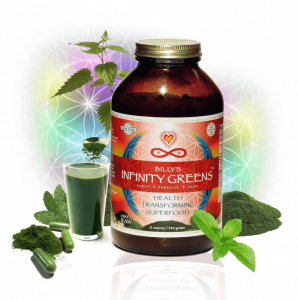
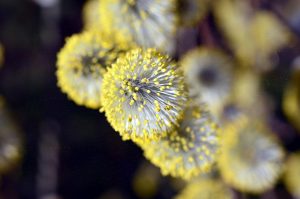







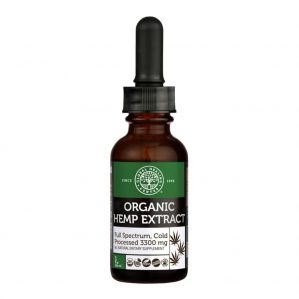
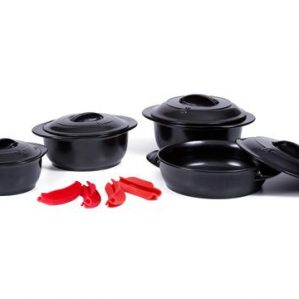

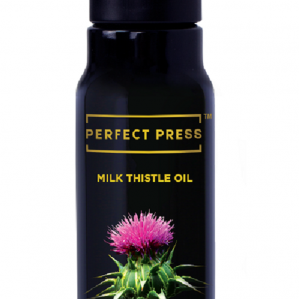












1 Comment
[…] top essential oils for acid reflux and […]